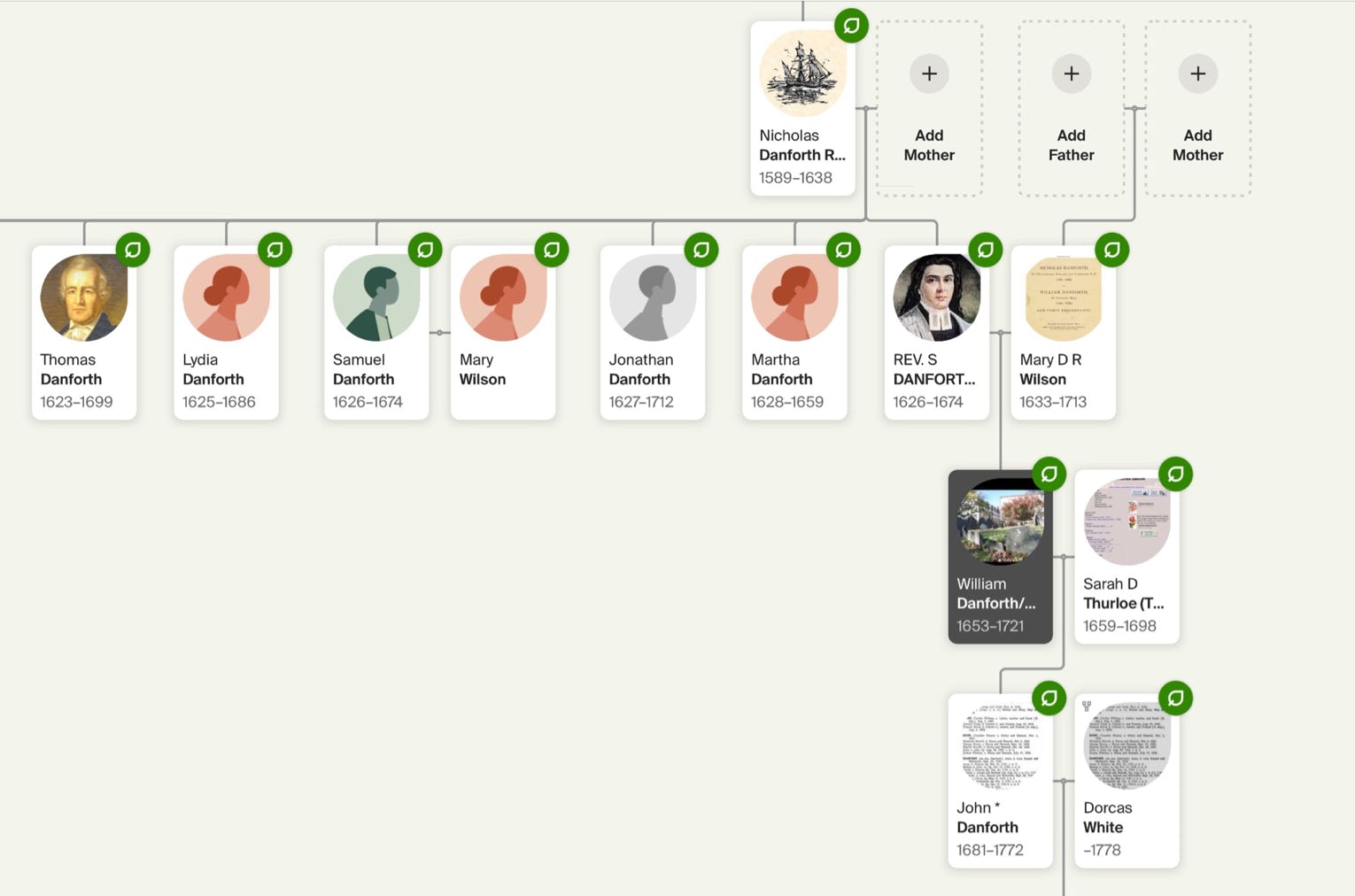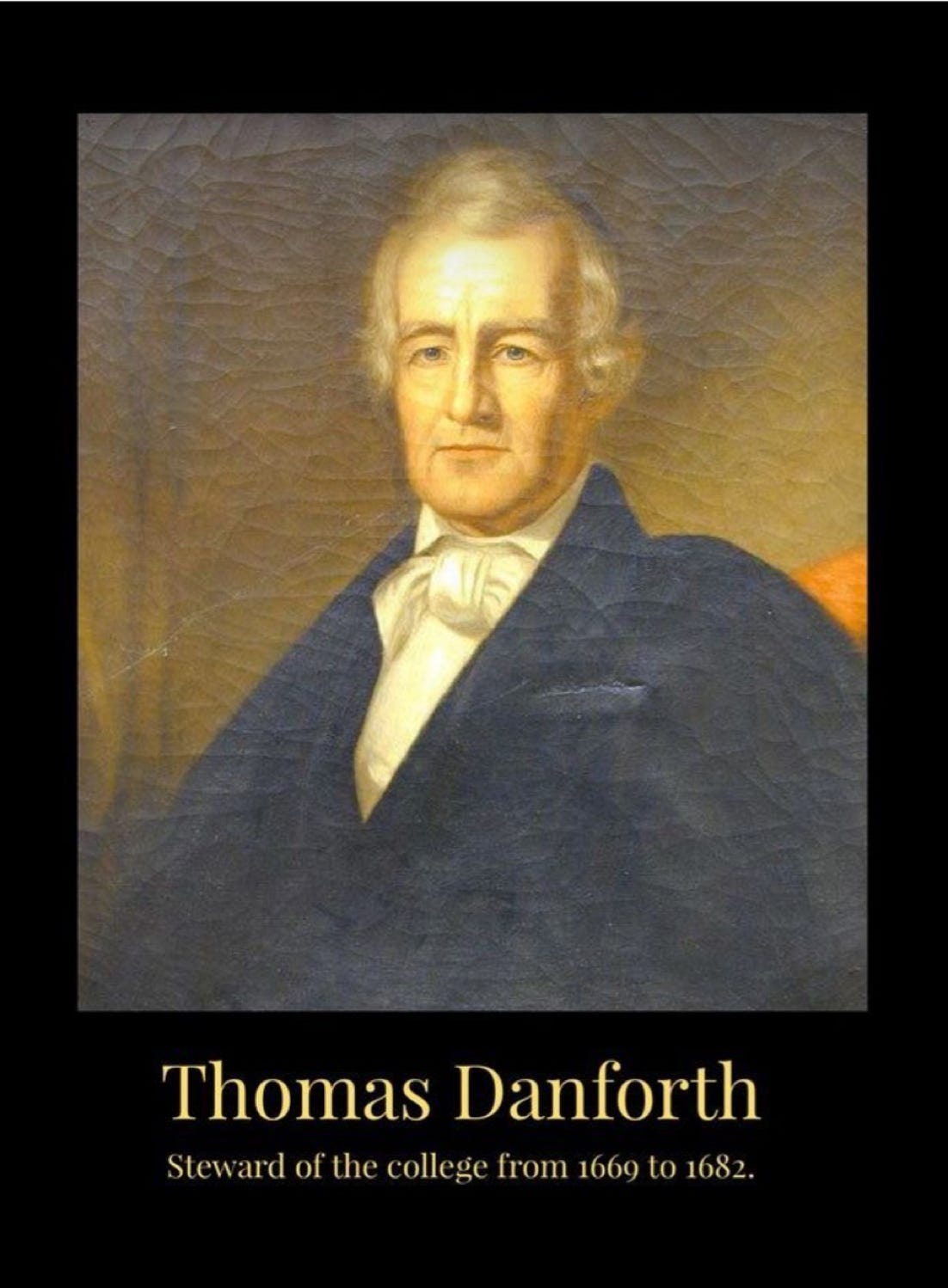
The Danforths
SOPHIA
DANFORTH

Sophia Danforth was born April 7, 1799 in Argyle, Maine













Rev. Samuel Danforth
Hugo’s 11th Great Grandfather
Rev. Samuel Danforth was born October 17, 1626 in Framingham, Suffolk, England
He was born October 17, 1626, in Framlingham, Suffolk, England, the sixth of seven children of Nicholas Danforth (1589–1639) and Elizabeth Symmes Danforth (c.1596–1629). Six surviving children— Elizabeth (1619–1673), Anna (1622–1704), Thomas (1623–1699), Lydia (1625–1686), Samuel, and Jonathan (1628–1712) —emigrated with their father to Massachusetts in 1634. After their father died in 1639, Samuel lived with Thomas Shepard, pastor of the church in Cambridge, and later attended Harvard College, where he graduated in 1643 and remained as a tutor until 1650, whereupon he became one of the five founding Fellows of Harvard.
Danforth's studies included astronomy, and during this time he published three almanacs (for 1647, 1648, and 1649), which are the earliest surviving American examples of the form. A fourth (for the year 1646) is also attributed to him, although the single surviving copy is missing the first several pages and any attribution. These almanacs included his own original poetry (some in the form of enigmas or word puzzles), and are among the earliest examples of secular verse published in New England. They also contained—in addition to celestial tables, tide tables, calendars, and dates of court sessions—brief chronologies of significant events in New England's history. In 1650 he became pastor at The First Church in Roxbury, where Rev. John Eliot was Teaching Elder, and was ordained on September 24, 1650. In 1651, he married Mary Wilson (1633–1713), daughter of the Rev. John Wilson of Boston, with whom he had twelve children in 24 years. He died November 19, 1674. Samuels older brother Thomas:






